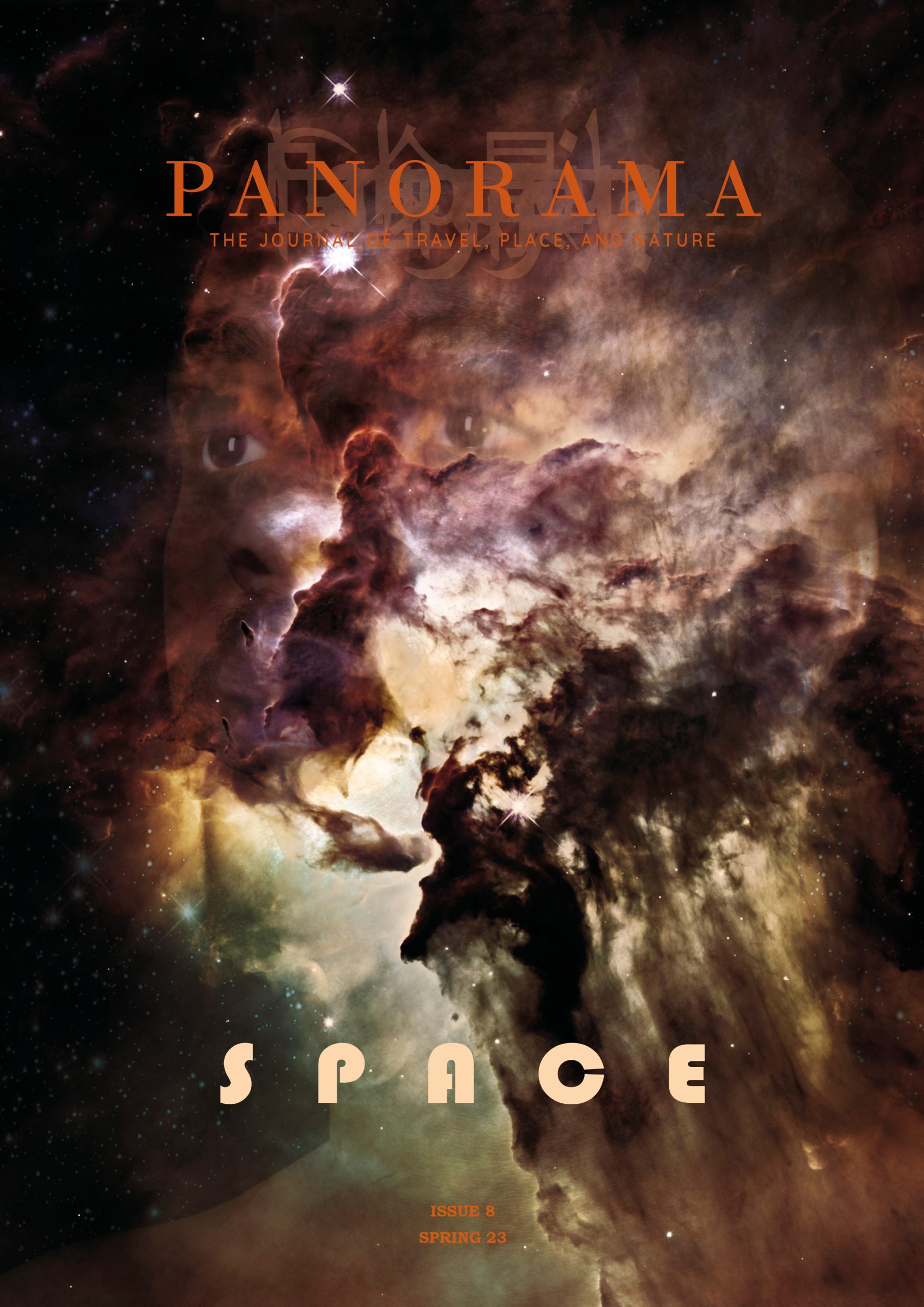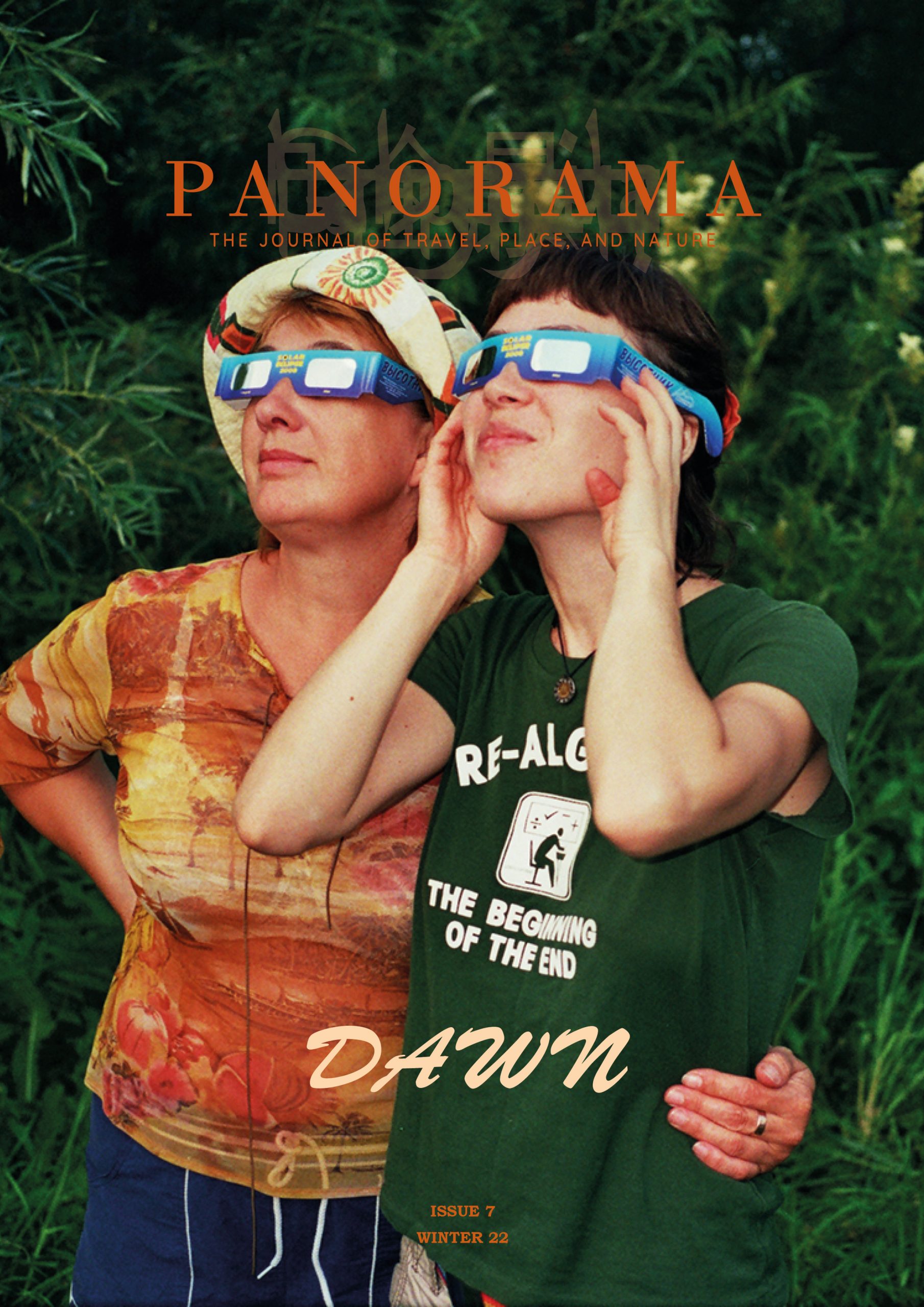On the port of Haifa, in a stale boardroom, a young American with a forced smile representing the Rhapsody of the Sea, a cruise ship operated by Royal Caribbean International, trained about sixty of us on how to check in customers with the company tablets. He named all the passports that required additional scrutiny from our local supervisors. Basically, a list of sanctioned countries and those considered hostile, perhaps because they defend their sovereignty. The Europeans were coast clear, big surprise. So were the countries they successfully colonized. The racism sounded obvious to at least my girlfriend and I, but it would have been a moot point to raise with the other employees. So many of my fellow Israelis kept their heads buried in the white sands of global history, including, most importantly, the current military occupation with our nation’s name on it, while the Palestinian staff kept their heads down, just to get by. Although, maybe, if I had said something in an innocent way, it might have slipped under their skins and irritated the spirit. But I was trying to keep my mouth shut. It was only my third day, and this time–I had promised myself–I would stick around long enough to make a little money.
Besides, these weren’t high stakes. I was responsible for checking people’s passports and giving them room keys for a Mediterranean cruise holiday, an enterprise that happily sailed on the lively waves of imperial aftermath. You didn’t need to go far, for evidence. Just descend into the ship’s lower chambers to find the exploited Filipino workers who couldn’t even look out the windows of their stiff bunkers–because there aren’t any through which to witness the environmental ramifications of the vessel’s gluttony. But what travel options exist for those whose limited mobility, budget and options make them easy targets for the cruise industry? Are they even aware of the commercial cynicism funded by their dollars and euros? And to what extent are they culpable for their ignorance?
Inside the industrial tent where my colleagues and I occupied a row of twenty counters, hundreds of holiday goers lined up in the queue. Most approached us with documents in hand, having already passed through port security and labored under the serious sun to get here. After serving two dozen people, I encountered my first anomaly: I had never seen a burgundy passport before. The hand offering it to me belonged to a round woman. Everything about her gave that impression: round brown eyes and round brown cheeks. Even her brown hair orbited around her round face like a halo. But beneath all that wholeness, I sensed a subtle private panic glinting in her eye. I flipped through the pages to find her image.
“Madagascar,” I said. “Isn’t there a special spice that only grows there?”
The woman ignored my attempts at smalltalk. “I have permanent residency in France,” she said, flatly.
I found the official card attached with a paperclip to the back end. I followed my training and tried to scan the document, but the image wouldn’t capture on my device. “Just a moment,” I said.
The woman frowned.
I walked under the flickering fluorescent lights past ten pairs of coworkers serving other passengers, some making up answers, because we were instructed to know it all, and over to my supervisor, who knows most of it, but could care less. She recorded the woman’s details on a sheet of paper, dismissed me and returned her attention to a database on a computer screen. We had been told that permanent residency was enough to avoid scrutiny, but it turns out that one’s place of origin remains foremost at the border. It’s ironic then, that this American company was incorporated in Liberia and the Italian one keeps headquarters in Switzerland to avoid any public redistribution of their wealth. I returned to the counter.
“Everything’s fine,” I told the woman. But what is fine really, and who was I to say?
Her expression read like an urgent memo; get this over with. I asked for her older companion’s passport. He stepped forward with confidence.
“He’s French,” she said.
Ah yes, the French. Responsible for the brutal domination of the Malagasy from 1897 until 1958. I processed his passport without having to tell anyone. Then I gave them their cabin tickets. The incongruity stayed with me as they left for the third gate, to show their passports yet again, and then through the duty-free shop before boarding the pensioners’ dream boat in time for a late buffet lunch. I continued to think about her. On my way home, off the port premise, across downtown, up the hill we call Mount Carmel and into the safety of my apartment, I thought about her throughout the night, and until my consciousness merged into sleep. Again, the next morning, and so on. I’m thinking about her now.
Did she take charge because it was expected of her? Dealing with the details like a wife. Or did she assume authority to assert her autonomy, like the repressed resistance movements of her motherland, crushed by the French in 1949? She was not much younger than me, somewhere in her forties. Was this a vacation or a forced performance? Was the ship’s dark-skinned working class an inescapable reminder of injustice? Theirs and her own. I assumed that she immigrated as a domestic worker and found a tolerable white guy with extra sugar she could send home to feed who-knows-how-many people. How old were her children and did they remember any of the circles of her form? And is this constant assessment and categorization from strangers, endlessly endured, the primary determinant of her character?
I had been implicated at fifteen dollars an hour, and seventy-five a day, before taxes, through a subcontracted labor company. I got this gig on account of my girlfriend’s aunt’s connection with a partnering corporation. My supervisor was the daughter of the grandson who inherited the business. I held gossip, but no power. Just a white shirt I had paid for out of pocket, and a pin with the word crew and a symbol of an anchor, that I had to return after each shift. It was all a cheap facade. The building that sheltered us was no more than a large beige prop with cheap air conditioning and three stylized port-a-potties. The guards too, were encouraged to believe that the state had left security in their cocky hands, as if the Pegasus spyware wasn’t developed in our high tech empire, and our phones weren’t tracking devices that secret intelligence couldn’t access at whim. The borders themselves; shifting inventions.
Even if I told her all of that, she’d still have to wonder. She’d have to be suspicious of my motives. She couldn’t afford to trust me, and I couldn’t afford to be trusted.
Days later, when the ship was probably embarking on the port of Barcelona, it came to me, it came to me: Madagascar vanilla beans, the gold standard. Pollinated by hand, cured in the sun.










